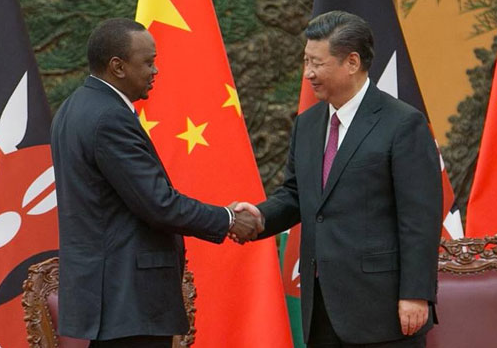
Ethiopian expert defends China-Africa cooperation against Tillerson’s ‘sovereignty’ claim

Beijing is a better partner for Africa than Washington because Chinese investment has improved people’s lives here, an Ethiopian expert said Thursday.
Abebe Aynete, a senior researcher with Ethiopian Foreign Relations Strategic Studies Institute, said the Chinese investment in infrastructure has brought changes in African countries that is “plain to see.”
U.S. accusations about China-Africa cooperation is “detached from reality,” Aynete said.
U.S. Secretary of State Rex Tillerson, who is on a five-nation African tour, was quoted by media as criticizing the way Beijing structured loans to African countries during his visit to the African Union headquarters in capital Addis Ababa on Thursday.

Tillerson also claimed that Chinese investments did not lead to significant job creation in Africa. Tillerson and other U.S. officials also say Chinese firms, unlike American ones, don’t abide by anti-bribery laws and subsequently add to Africa’s problems with corruption. And if countries run into financial trouble, they often lose control over their own infrastructure by defaulting to a lender that historically has not always been forgiving.
Some African countries now owe sums of up to 200 percent of their annual economic output, the U.S. has said, with most debt owed to China.
However many in Africa say that’s a risk worth taking.
African politicians and economists say that China, unlike the United States, is showing up on the continent with a generous checkbook in hand. Given the unpredictability involved in investing in poorer countries, China is often the only one willing to take the risk. African nations also realize that China’s investments don’t come with the added pressure of worrying about human rights and good governance issues that often accompanies U.S. assistance.

“The Chinese investment in Africa focuses on infrastructure, while the United States for a long time has focused on promoting its values.” Aynete said.
Brahima Coulibaly, a former Federal Reserve economist and Africa scholar at the Brookings Institution put things in even simpler terms. “The Chinese are ready to basically do business. They’re ready to partner with any country that is also willing to partner with them in a way that it makes sense to them and furthers their agenda.”
There are obvious reasons why the United States would want to cast itself and its companies as a more favorable alternative to China, the geopolitical rival and economic competitor whose influence is also on the rise in Latin America, Europe and the Middle East.
In Djibouti, where Tillerson will visit Friday, China has built its first overseas base along the key shipping route that links Europe and Asia. Its “string of pearls” plan calls for building a network of ports stretching from China to the Persian Gulf. Beijing has also been busy building artificial islands and then taking steps toward militarizing them in a bid to expand its control over waters far from its coast. All this activity potentially weakens America’s standing in Africa and globally.
“The statement from Tillerson comes from the fact (that) the United States fears that it has lost its influence on Africa to China,” Aynete said. “The choice is for Africans to decide who is a better partner.”






